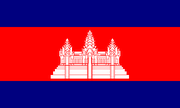The term "olympiad" is used generically to refer to a math contest in which students are asked not to compute numerical answers, but to give proofs of specified statements. (Example: "Prove that 2003 is not the sum of two squares of integers.") The most famous example is the International Mathematical Olympiad; most countries that participate at the IMO have national olympiads as part of their team selection process. Some areas have additional olympiads at the regional or local level.
The jump from short answers to olympiads is a tough one. Here are some tips for students making this transition.
Practice, practice, practice. The only way to learn math is by doing.
Proofs are essays. The better written a proof is, the more likely it is to be understood. Even such mundane things as grammar, spelling and handwriting are worth a bit of attention.
Define your terms. If you're going to use a word in a way that might not be commonly understood, define it precisely. Then stick to your definition!
Read the masters. No one ever learned how to do good mathematics in a vacuum. When you do practice problems, read the solutions even of the problems you solved.
There's more than one road. Different solutions can be equally valid; even when solutions agree in substance, differences in perspective can be significant and valuable.
It's not over when it's over. Don't hesitate to continue thinking about the problems on a contest after the time ends, or to discuss the problems with others.
Learn from your peers. They're smarter than you might have expected.
Learn from the past. Try to relate new problems to old ones; you may learn something from the similarities, or from the differences.
Patience. No one said this was easy!
Sunday, February 3, 2008
Subscribe to:
Comments (Atom)





